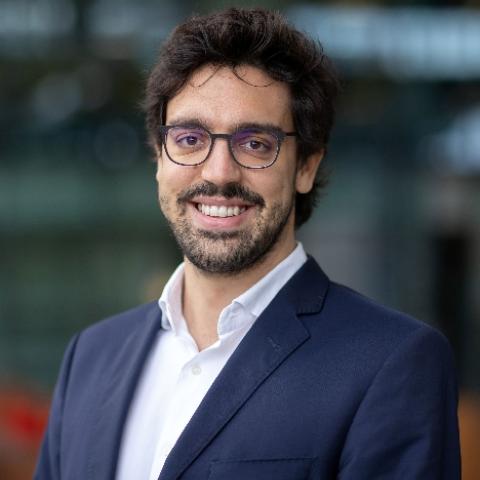Seminar | September 9 | 3 p.m. | 290 Hearst Memorial Mining Building
Mauro Salazar, Eindehoven University of Technology (TU/e), Netherlands
Institute of Transportation Studies
Mauro Salazar, Assistant Professor, Control Systems Technology, Eindehoven University of Technology (TU/e), Netherlands will present Optimization Models and Methods for Mobility Systems: From Electric Racing to Sustainable Urban Mobility at the ITS Transportation Seminar on Friday, Sept. 9, 2022 at 3 pm in 290 Hearst Memorial Mining Building, Join us for coffee and cookies at 2:30 pm.
Bio: Mauro Salazar is an Assistant Professor in the Control Systems Technology section at Eindhoven University of Technology (TU/e), The Netherlands, with a co-affiliation at Eindhoven AI Systems Institute (EAISI). He received his PhD degree in Mechanical Engineering from ETH Zürich in collaboration with the Ferrari Formula 1 team in 2019, and then moved to Stanford University for his Postdoc until 2020. Mauros research is focused on optimization models and methods for cyber-socio-technical systems and control, with applications on sustainable and human-centered mobility, pandemics, and material design. He was awarded the ETH Medal for his MSc and PhD theses, and his papers were recognized with the Best Student Paper award at the 2018 IEEE Intelligent Transportation Systems Conference and at the 2022 European Control Conference. In 2022, he was nominated for TU/es Young Researcher Award.
Abstract:
Nowadays mobility is facing challenges ranging from urban traffic to environmental pollution and noise. The advent of new cyber-physical technologies such as autonomous driving, wireless communication and powertrain electrification might provide us with promising opportunities to face these challenges. Yet how to successfully combine such technologies in order to design and deploy economically-viable, socially-inclusive and environmentally-friendly mobility solutions is still unclear.
In this context, this talk will show how we leveraged optimization methods on research projects ranging from the single-vehicle level to the transportation-system level. In particular, I will first present models and optimization algorithms to design and control fully-electric endurance race cars via convex optimization. Second, I will give an overview on our work on Intermodal Autonomous Mobility-on-Demandnamely, a mobility system whereby self-driving cars provide on-demand mobility jointly with public transit and active modesincluding optimization models to analyze the societal benefits stemming from these new mobility paradigms, design methods, and incentive schemes to align the behavior of selfish users with the system optimum whilst guaranteeing fairness.
Amanda Cairo, acairo@berkeley.edu, 510-642-5322

